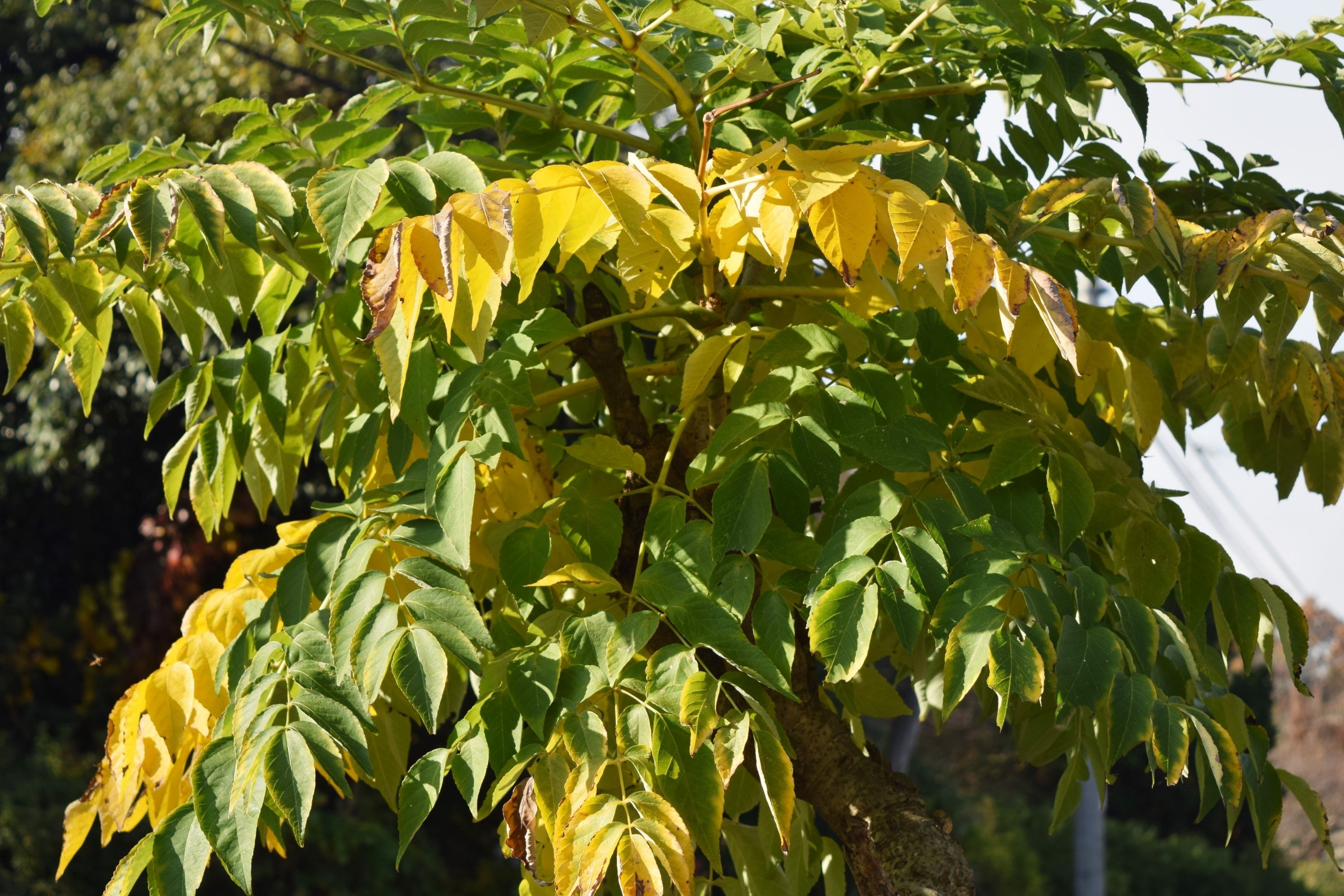Japanese Angelica Tree
(Aralia elata)

Description
Aralia elata is a deciduous, thorny shrub or small tree, native to Japan, Korea, and eastern parts of Russia. It belongs to the family Araliaceae, which includes other popular houseplants such as the Schefflera and Fatsia. Aralia elata is also known by several common names, including Japanese angelica tree, devil's walking stick, and Korean angelica tree. Physical Description: Aralia elata can grow up to 6-10 meters tall, and its leaves are large, compound, and alternate, with 7-11 leaflets. The leaflets are sharply toothed and can be up to 20 cm long. The bark is grayish-brown, with numerous sharp spines, which can reach up to 10 cm in length. The flowers of Aralia elata are small and greenish-white, produced in large clusters that can be up to 50 cm in length. The flowers are followed by small, black berries, which are also produced in clusters. The berries are edible but not commonly consumed due to their bitter taste. Cultivation and Propagation: Aralia elata is a hardy plant and can grow in a wide range of conditions. It prefers well-draining soils and can tolerate both sun and shade. In colder climates, it can be grown as a shrub, but in warmer areas, it can grow into a small tree. Propagation of Aralia elata can be done through seeds, cuttings, or division. Seeds should be sown in the spring or fall, and cuttings should be taken in the summer. Division should be done in the spring, just as the new growth is emerging. Uses: Aralia elata has a wide range of uses. In traditional Chinese medicine, the roots of Aralia elata are used to treat rheumatism, arthritis, and other inflammatory conditions. The plant is also used in Korean traditional medicine to treat a variety of ailments, including coughs, colds, and digestive disorders. The young shoots of Aralia elata are a popular vegetable in Japan and Korea. They are harvested in the spring and can be cooked in a variety of ways, including stir-frying and pickling. In landscaping, Aralia elata is often used as a specimen plant, due to its unique appearance and size. Its thorny nature makes it a good plant for creating natural barriers or hedges. Conclusion: Aralia elata is a versatile and hardy plant that has a wide range of uses. Its unique appearance, size, and thorny nature make it a popular choice in landscaping, while its roots and shoots have been used for centuries in traditional medicine and cuisine. Whether grown for its ornamental value or its medicinal and culinary uses, Aralia elata is a valuable plant with much to offer.
Taxonomic tree:







